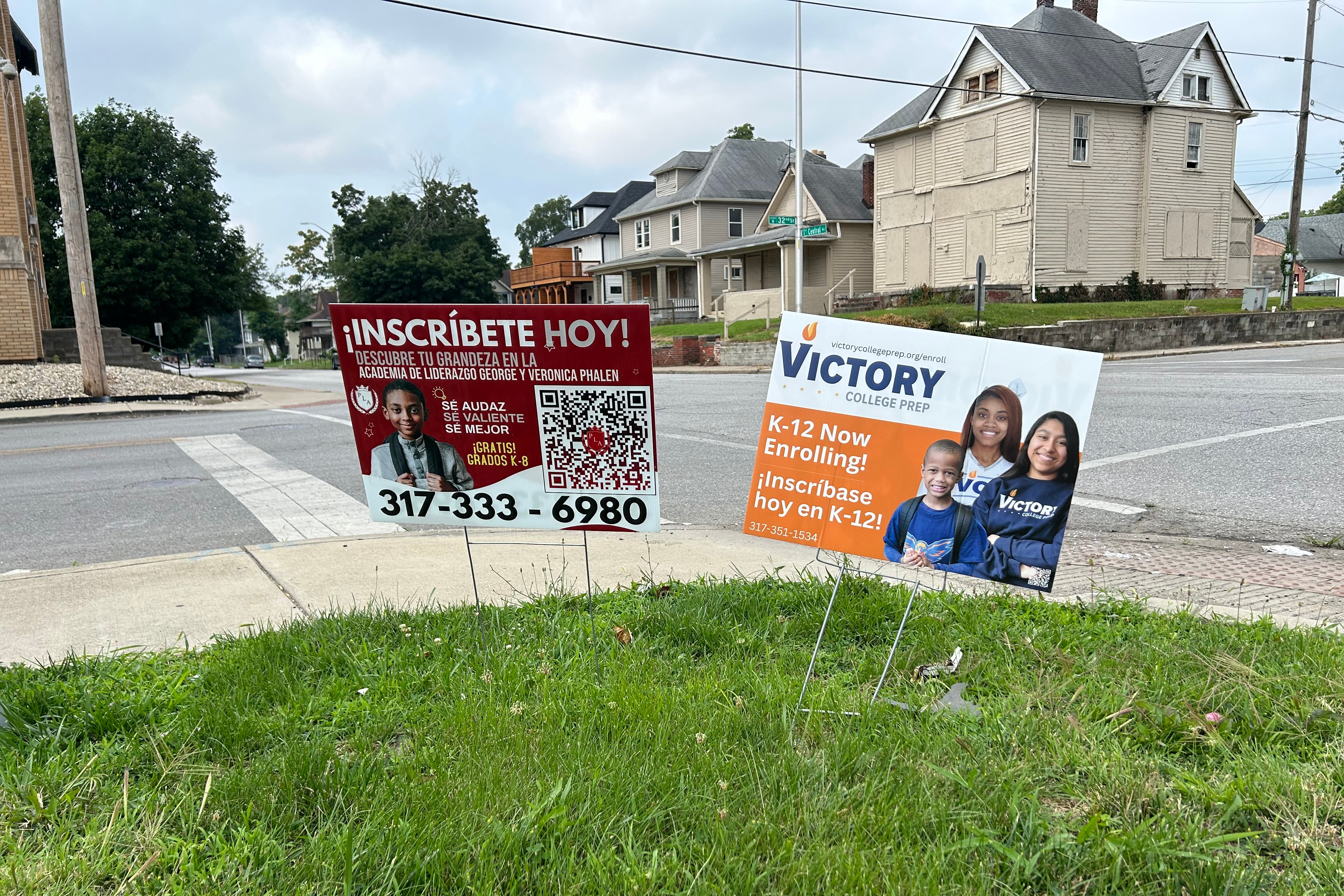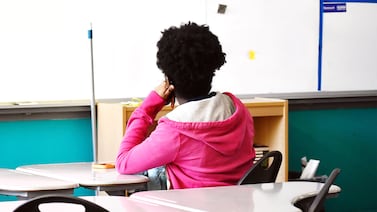Sign up for Chalkbeat Indiana’s free daily newsletter to keep up with Indianapolis Public Schools, Marion County’s township districts, and statewide education news.
Update: The Indiana legislative session ended on March 8, 2024. Here are the education bills that did and didn’t pass.
A proposed bill would restrict the power to approve and oversee new charter schools in Indianapolis to two government authorizers: the Indiana Charter School Board and the Indianapolis Charter School Board.
Under the legislation pitched by Democratic state Sen. Andrea Hunley, a former Indianapolis Public Schools principal, several other authorizers that are active in the state would no longer be allowed to approve charter schools in Marion County.
Authorizers are institutions that have the power to approve or reject charters for new schools, and provide oversight that an elected school board would for traditional public schools. In Indiana, they can be tied to school boards, the state and Indianapolis charter boards, or certain universities.
Hunley’s bill follows a Chalkbeat Indiana report on charter school accountability that found roughly a third of brick-and-mortar or blended-model charter schools in Marion County have closed since 2001.
Authorizers outside of Marion County don’t fully understand the city’s landscape, Hunley said, and are not sufficiently accountable to the city’s constituents or families. Restricting authorizing power to the city and state charter boards, she argued, would provide more local accountability, while also allowing Indianapolis charter schools to choose from more than one authorizer.
Most charter schools in Indianapolis are authorized by the Indianapolis Charter School Board, which is part of the mayor’s Office of Education Innovation. But the city’s charter schools have also historically been authorized by the state charter board, by Ball State University’s Office of Charter Schools in Muncie, and by Education One, the authorizing arm of Trine University in Angola.
Hunley cites questions about accountability
Chalkbeat’s analysis found that at least three of the schools that closed since 2001 had sought and won approval from a different authorizer, after they or a sister school faced scrutiny from their initial authorizer. Those schools received their second approval from either Ball State University or Education One.
Hunley said the Chalkbeat report raises questions about whether authorizers are providing adequate oversight and quality control in Indianapolis.
“It’s really a problematic process that’s been allowed to happen,” Hunley said. “I think now we’re seeing the reality of how damaging, destabilizing that can be for kids.”
Last year, two Indianapolis charter schools closed in the middle of the school year, sending parents and students suddenly searching for other school options. One was authorized by the Indiana Charter School Board and another by Ball State.
Other schools have been approved by one authorizer after being rejected by another in the application phase. Last year, for example, Education One granted Purdue Polytechnic approval to operate a third campus in Indianapolis after the Indianapolis Charter School Board rejected the charter amid intense local public pushback.
Under Hunley’s bill, charter school operators throughout the state seeking authorization from higher education institutions would also be required to meet with school district leaders in the area where the proposed charter school would operate to discuss their proposal, their financial stability, previous performance of any current schools in the operator’s portfolio, and capacity for growth.
School districts would then make a nonbinding recommendation to the authorizer on whether to approve the school.
The bill would protect charter schools as a whole by ensuring that only high-quality schools are opened, Hunley argued. Some charter schools in her district are doing well, she said, but the general image of charter schools suffers when some close due to mismanagement, underenrollment, or other reasons.
“We don’t want to say in any way all charter schools are bad,” she said. “They aren’t.”
Charter proponents oppose bill
Advocates for charter schools defended the sector’s record of accountability and quality.
Lindsay Omlor, executive director of Education One, said in an email that the authorizer is highly present in all 15 of its charter schools. Staff conduct routine site visits and attend all school board meetings, Omlor said, and annual stakeholder survey results show a satisfaction rate of at least 95% over the last seven years.
“We already follow all statutory requirements for notifying districts and conducting a public hearing, etc. when we are considering an application for a new charter school,” Omlor said. “Point being, we are doing this work in accordance with the law, and based on the feedback we receive from our stakeholders, we know we are doing it well.”
The Indiana Charter School Network, which represents the state’s charter schools, is also opposed to the bill.
“We do not support any limitation on authorizer options in Marion or any county,” Marcie Brown-Carter, the group’s executive director, said in an email. “We do not support placing additional steps into the authorization process for school districts when they are already free to participate in public hearings, and many times do.”
The mayor’s Office of Education Innovation said through a spokesperson that it’s too early to comment on the proposed legislation but that it plans to follow the issue closely. Ball State University and the Mind Trust, which has helped spread charter schools throughout Indianapolis, also declined to comment Wednesday afternoon.
The legislative session begins on Jan. 8.
Amelia Pak-Harvey covers Indianapolis and Lawrence Township schools for Chalkbeat Indiana. Contact Amelia at apak-harvey@chalkbeat.org.







